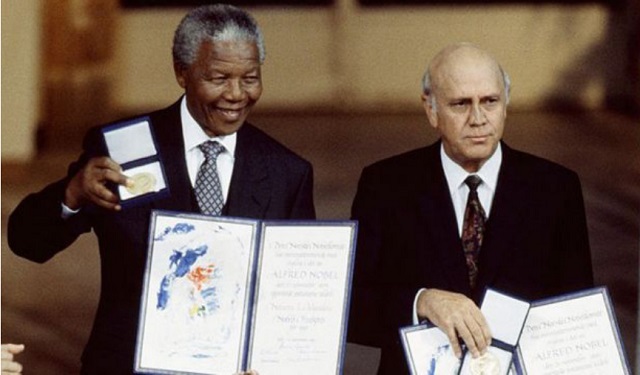
De Klerk and the security forces
De Klerk’s denial of apartheid state violence partly sprang from his insistence that he was personally unaware of the abuses by its security forces. He was not part of the inner circle of his securocratic predecessor Pieter Willem (PW) Botha, who had created the repressive National Security Management System.
However, he was a member of the State Security Council, the structure at the pinnacle of the National Security Management System. As a result, the Commission found that “ [His] statement that none of his colleagues in Cabinet, the State Security Council or Cabinet Committees had authorised assassination, murder or other gross violations of human rights was indefensible”.
During his presidency, political violence escalated to unseen levels. De Klerk undertook various actions to neutralise the securocrats, suggesting that a divide had by then opened up in the National Party government between those determined to sustain apartheid and those believing it could no longer continue unchanged.
But, the De Klerk grouping in the party certainly did not aim to establish the current constitutional democracy based on human dignity, equality and freedom. At the start of the multiparty negotiations the party was confident that it could continue with mere apartheid reformism called “power sharing”, as had been started by Botha in the 1980s.
Power sharing involved building a “white veto” into parliamentary representation, as a counterweight to the enfranchisement of the black majority. But intense political violence halted the negotiations, increasingly putting the possibilities for a political settlement at risk.
The creation of an alliance between white and black reactionaries in the Afrikaner-Volksfront, the Inkatha Freedom Party and the then nominally independent Bophuthatswana bantustan brought renewed urgency to finding common ground.
This quest was facilitated by scenario planning exercises that brought opponents together in social environments, contemplating South Africa’s possible futures. These built on a series of earlier meetings, as also initiated by the Botha regime with Mandela as a political prisoner as early as in 1984.
The unexpected personal dynamics of foes coming face to face collapsed the stereotype of the “black Communist terrorist” for the National Party negotiators. These interactions paved the way for the party and the ANC as the primary parties to build mutual understanding and eventually trust, especially between their respective lead negotiators, Cyril Ramaphosa and Roelf Meyer.
Unstoppable momentum
De Klerk and his negotiators were swept along by the momentum of events. They came to realise that a democracy in which a constitution with a bill of human rights is supreme, with equality before the law irrespective of “race”, would be as best a protection for their constituency as they could hope for.
Regarding economic transformation, the National Party and the white capital interests they represented failed to block a constitutional clause expressly providing for expropriation of property in the public interest. But, the clause included a rider that such expropriation should be subject to compensation. The clause also stipulates that “an equitable balance” should be struck between the interests of the public and the owner.
As a National Party loyalist De Klerk continued on Botha’s path of apartheid reformism, including through talks. But, unlike the strongman Botha, he was no securocrat. He came to believe that power sharing could not ultimately be imposed through state violence.
Where Botha had faltered, De Klerk was able to take alternative steps. As a conservative National Party leader, he could bring most of the party and its constituency with him. It was not a change of heart that drove De Klerk. He had entered into a perfect postcolonial storm, from where there was no return.
****
Christi van der Westhuizen is Associate Professor, Centre for the Advancement of Non-Racialism and Democracy (CANRAD), Nelson Mandela University
 The Independent Uganda: You get the Truth we Pay the Price
The Independent Uganda: You get the Truth we Pay the Price



